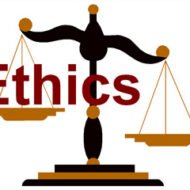Currently Browsing: Business Ethics
Posted by Managementguru in Business Ethics, Business Management, Principles of Management, Project Management, Strategy
on Mar 15th, 2014 | 0 comments

Environmental Sustainability-A Global Strategy Conservation of Environmental Resources: Corporate companies that are involved in the manufacture of electrical and electronic goods are becoming more and more concerned about the conservation of environmental resources, looking for convenient and eco friendly alternate biodegradable energy resources, thus leading to reduced energy consumption, beneficial to both the firm and society in general. “Go Green”, is the mantra that not only adds to the firm’s image but also appeals to the customers and suppliers who are associated with these firms. Disposal of E-Waste: Disposal of e-waste is one thing and recycling is another, both of which have to be handled with care. Developing countries have not evolved a proper processing system to discard or recycle the electronic waste such as scraps, obsolete devices, broken instruments etc., which can cause serious pollution problems and health hazards. The governments of all developed and developing countries enforce pollution control measures to monitor and control the quality of air, water and land. Any chemical exposure during recycling of waste can cause irreparable consequences, like the one in a nuclear reactor leak, where the harmful effects of radioactive substance stay for a long time, affecting the masses over the generations to come. The World- One Big Global Village: The revolution in the IT (information and technology) industry has made the world very small, converting it into a global village. Obviously the percentage of consumers using personal computer systems and networking systems is quite high. What happens to the electronic waste? How do people dispose it of? Do they really have the awareness or at least concern about the negative consequences and dangers of the improper disposal methods? Developed countries at least make it a point to impose fine on vendors and consumers who do not follow the federal laws on how to dispose e-waste. A general awareness is seen among the people of these nations. But, what is the condition in developing nations, where there are no strict rules laid down, that neither control the disposal of electronic goods nor ensures the health and safety standards of labor involved in such processes. Recycling Plants: Governments can encourage manufacturers who incorporate waste recycling plants as part of their production that helps in usable component recovery and facilitates cost-effective processing of electronic waste in volumes. The crux of the whole idea of recycling is to avoid the green gas emissions as a result of manufacturing products from scratch. Recycling of electronic products by dismantling them and recovering the usable components makes a great difference in conserving the energy resources, less contribution to pollution and increased efficiency utilization. Green Computing: Green computing is aimed by many of the electronic vendors where caution is exercised even right from designing the product through its production, usage, disposal and recycling, that no negative impact is created on the environment. In the modern computer era, where each and every organization employ numerous computer systems, network and communication systems, printers, storage devices for its communication and business transactions, environmental safety has to be included in the policy framework.RTGS (Real Time Gross Settlement) and Net Banking are e-tools that cannot be done with and businesses stumble if there is a hitch in these money transfer mechanisms. When we are able to appreciate the power of technology, we should also try to counterbalance its darker side through environmentally sustainable operations. Countries with high population density are supposed to exert unprecedented pressure on the environmental resources such as land, soil, air, water and forests. The government has to frame strong policies in order to arrest the degradation process. IT industry helps a nation to grow economically and at the same time should also aim at building an environmentally sustainable...

Posted by Managementguru in Business Ethics, Business Management, Entrepreneurship, Organisational behaviour, Principles of Management
on Mar 15th, 2014 | 0 comments

The Origin of Unethical Behavior Ethical considerations in business are important to managers as it is to individuals in their personal lives. Personal life and business life cannot be perfectly separated with respect to moral judgements. A number of factors have been established as significant in making ethical standards a primary concern of business managers. What are Values? For the individual, the job is the centre of life, and its value must be, in harmony with the rest of life, if he is to be a whole and healthy personality. In an industrial society. The values tend to become those of the entire corporate culture. The public is insisting that business leaders are, in fact, responsible for the general social welfare and that the manager’s responsibilities go far beyond those of running the business. Even if the manager insists on a narrow definition of his role as possible, it is, however, essential that he takes these intangibles into consideration since they are the real motivating force in an organization. Expectations of the Society: If an organization did not behave in accordance with the social systems and expectations, it may not merely lose its market share but face another piece of legislated control and might also lose its very right to exist. Many a times managers may be forced to compromise their personal ethics and moral values in order to achieve organizational goals. Everyday ethical decisions are usually made between the lesser of the two evils rather than obvious right and wrong. Often it may be difficult for the manager to free himself from taking a biased attitude and look at issues objectively. In spite of good intentions, he becomes involved in the situation and it becomes difficult to retreat and take a detached point of view in examining the issue from an ethical standpoint. In the light of these problems, certain examples can be cited to answer the question as to what constitutes unethical behavior. Padding expense accounts to obtain reimbursement for questionable business expense. Revealing confidential information of trade secrets. Giving or accepting gifts or favors. Using company property and/or materials for personal use. Leaving the job without abiding by the sales contract. Being severely critical of competitors. Attempting to corner opportunities by bribing public officials. Price discrimination, unfair trade practices, unfair pricing etc. , Dishonesty in fulfilling contracts. Politics inside the organization. Unless and until the professional manager puts the interest of the organization in front of his own, places the duty to the society above his duty to the organization wholeheartedly, there is no point in talking about ethics in theory. Though a number of firms spend their time, money and energy in formulating statements, in reality their enthusiasm is lost in practice. The gap between the espoused and practiced values creates a dissonance in the minds of the people, and as a result in the...

Posted by Managementguru in Business Ethics, Business Management, CSR, Entrepreneurship, Principles of Management
on Mar 15th, 2014 | 0 comments
![Code of Ethics]()
Institutionalize Your Code of Ethics Business Ethics is a term we often come across in the world of corporate business. Ethics generally distinguishes between the right and the wrong. But you might argue, what is right for one person may not be for the other. “True! But there are certain principles that are widely accepted by everyone that guides the behavior of individuals or a business enterprise. Shall we say that Business Ethics is an UNWRITTEN CODE OF CONDUCT which governs the conduct of a business enterprise and also helps it in reaching the right decision? CSR CORPORATE SOCIAL RESPONSIBILITY comes into the big picture when you talk about business or professional ethics. When a person gears up himself to start a business, he studies the market as to how supportive it would be to carry on his business. He segments the market, evaluates the demography, approaches financial institutions like banks for loans, creates a big cacophony about the government’s red tapism to acquire licenses to do his business and when all these criteria accords a green signal he ventures into the market with a confidence that is backed up by all the above factors. Say by the end of the first year, he has done great business and the time has come for income tax or sales tax payments, a small voice cuckoos from within, asking him to think twice or to venture the possibilities of EVADING TAX. Once he tastes the essence of success and the POWER OF MONEY he deviates from the RIGHT CONDUCT and BEHAVIOR. He conveniently abstains himself from performing his duties towards customers, employees, government, share holders, stake holders and others. Mind you, being ethical is a statutory phenomenon and not a thing to be taken for granted. If your motivation and effort is oriented only TOWARDS PROFIT, thriving longer in the market will become a matter of concern. Every action has an equal and opposite reaction: “Whatever is that you take, you have to repay.”This is applicable both in personal life as well in business. Yogis’ have ascertained the fact time and again that you have to dissolve your karma or past actions to be a liberated soul. Neo world scientists also second this thought,” every action has an equal and opposite reaction. “Being ethical is not that demanding or tough as you have conceived it to be. In simpler terms, it even teaches you to be highly compassionate towards your fellowmen. Various aspects affecting ethical behavior in a business organization would be: Policies regarding moral duty and obligation Accounting ethics Corporate culture Ethics in management development programmes Dealing with “gray areas” Disciplinary procedures Review and updating the ethical code Increased concern about the well informed public Government regulations Value based management practices Enlightening the managers of top cadre Rewards and recognitions for people with right conduct and the list goes on and on. Corruptions, Bribery, Black marketing are some of the JARGONS that are strictly prohibited words and actions in the dictionary of ethics. Sound ethical practices not only create an IMAGE for your company, but also the recognition among your own employees that you could relish. Being ethical is not that difficult, only that it calls for undeterred determination and inbuilt...

Posted by Managementguru in Business Ethics, Business Management, CSR, Human Resource, Principles of Management
on Mar 12th, 2014 | 0 comments

What is the relationship between Corporate Social Responsibility and Business Ethics Business ethics can be defined as the principles and standards that establish acceptable conduct in business organizations. The acceptability of behaviour in business is determined by customers, competitors, government regulators, interest groups, and the public, as well as each individual’s personal moral principles and values. Can Ethics be Taught? I feel that ethics cannot be taught: it is an inbuilt entity and in countries like India where religion is all pervasive in business or any other discipline, this quality is imbibed in every individual right from his birth. The power of money and authority plays a major role in changing a man’s perspective and bureaucratic hurdles and red tapism mar the pace of business development. Businessmen should never compromise ethical principles with short-sighted objectives of amassing material wealth but should develop a spirit of altruism. Management education should focus also on training the individuals to be ethic-savvy apart from being mere decision making authorities satisfied with their designation and power of authority. Employees have the same kind of ethical responsibility towards their organisation and should not misuse time and property and should not place their interests before the enterprise objectives. What is Corporate Social Responsibility? Many consumers and social advocates reckon that businesses should not only make a profit but also consider the social implications of their activities. We define social responsibility as a business’s obligation to maximize its positive impact and minimize its negative impact on society. Although many people use the terms social responsibility and ethics interchangeably, they do not mean the same thing. Business ethics relates to an individual’s or a work group’s decisions that society evaluates as right or wrong, whereas social responsibility is a broader concept that concerns the impact of the entire business’s activities on society. There are good business reasons for a strong commitment to ethical values: 1. Ethical companies have been shown to be more profitable. 2. Making ethical choices results in lower stress for corporate managers and other employees. 3. Our reputation, good or bad, endures. 4. Ethical behaviour enhances leadership. 5. The alternative to voluntary ethical behaviour is demanding and costly regulation. Points to Ponder relating to behavioral ethics. 1. What conflicts of interest have you personally experienced in personal or professional roles? 2. If you perceive a potential conflict for yourself, what are some ways you might ensure that this conflict doesn’t lead to unethical behavior for you and others? 3. When have others’ conflicts of interest impacted how you or those you know were treated? 4. What types of policies can or do organizations implement to try to reduce conflicts of interest or their costs? 5. Why do you believe conflicts of interest are so pervasive in society? Why don’t we take more steps to avoid them? 6. Why is it so hard for individuals to recognize their own conflicts of interest, and how is this impacted by behavioral biases? Unethical behavior,conflicts,personal interests,responsibility What is Conflict of Interest? Conflict of interest arises when there is a clash between responsibility and reward. Say, if a doctor decides to be more business-like, if a judge decides to favor one party, if a ruling party favors a decision not good for the masses, what will happen? A conflict of interest exists when a person must choose whether to advance his or her own personal interests or those of others. Wal-Mart Stores, Inc., may have the toughest policy against conflict of interest in the retail industry. Sam Walton, the late founder of Wal-Mart, disallowed company buyers from accepting so much as a cup of coffee from suppliers. The Wal-Mart policy is black...

Posted by Managementguru in Business Ethics, Business Management, Human Resource, Principles of Management
on Mar 12th, 2014 | 0 comments

The Need for Business Ethics Every individual should be guided by certain code of conduct. Ethics deal with personal conduct and moral duty and concerns human relations with respect to right and wrong. In business, ethics is doubly important and the society expects the businessmen to act ethically. Business ethics adds to the image of the company and develops a sense of trust in the minds of people and a long lasting relationship that is to stay. If the businessmen act ethically there is no need for legal rules and regulations that govern the code of conduct. Most of today’s businessmen want to make a fast buck and does not have business ethics. Benefits of Business Ethics 1. Creates Credibility 2. Helps in ethical decision making 3. Enhances quality of living 4. Corresponds to basic human needs Business ethics is primarily concerned with the relationship of business goals and techniques to specifically human ends. It is a dynamic philosophy of socio-economic adjustments whose field is widening day by day. Pic Courtesy: Asuccessfulcareer Definition of Business Ethics: Typical definitions refer to the “rightness or wrongness of behavior, but not everyone agrees on what is morally right or wrong, good or bad, ethical or unethical.” “Application of general principles of ethic customary in a society to the areas where business operates.” In the words of T.M.Garrett, “business ethics is a study of moral rightness and wrongness of the acts involved in the production, distribution and exchange of economic goods and services.” Elements of Business Ethics: · It should be above business interests-no harm should be done to the society · It is more of a code of business behavior · It has responsibilities as roots and outcome as fruits · It is guided not by sentiments and emotions but by definite tenets · It has to be followed by one’s own will and cannot be enforced upon · It cultivates high sense of honesty, general welfare, justice and responsibility in the minds of businessmen · It emphasizes the importance of self discipline over external control by legislation. The businessmen should not make false promises which destroy the fair image of the business. Principles of Business Ethics: · Do not sell substandard or defective products or stick to under measurement · Do not resort to hoarding, black-marketing or profiteering · Do not destroy or distort competition · Ensure accuracy and sincerity in advertising, labeling and packaging · Do not tarnish the image of competitors by unfair practices · Make accurate business records available to all authorized persons · Pay proper taxes and satisfy other obligations · Do not form cartel agreements to control production, price etc. to the common determinant · Refrain from secret kick backs or pay-offs to customers, suppliers, administrators, politicians etc., · Ensure payment of fair wages to and fair treatment of employees · Fulfill honestly all responsibilities towards the organization. Owners, employees, consumers, suppliers, government and society at large. The most common unethical practices being followed would be: 1. Adulteration 2. Spurious products 3. Duplicates 4. Injurious products 5. Defective Advertisements 6. Low salaries 7. Poor working Conditions 8. Exploitation- Sexual harassment and bullying, use of child labor 9. Financial misconduct-Employees being made to sign for more than actually paid for 10. Tax evasion- Improper records or bogus records to show hiked up profit in the p&l 11. Pollution 12. Bribes and circulation of money to buy political support- The notoriously popular 2G...









